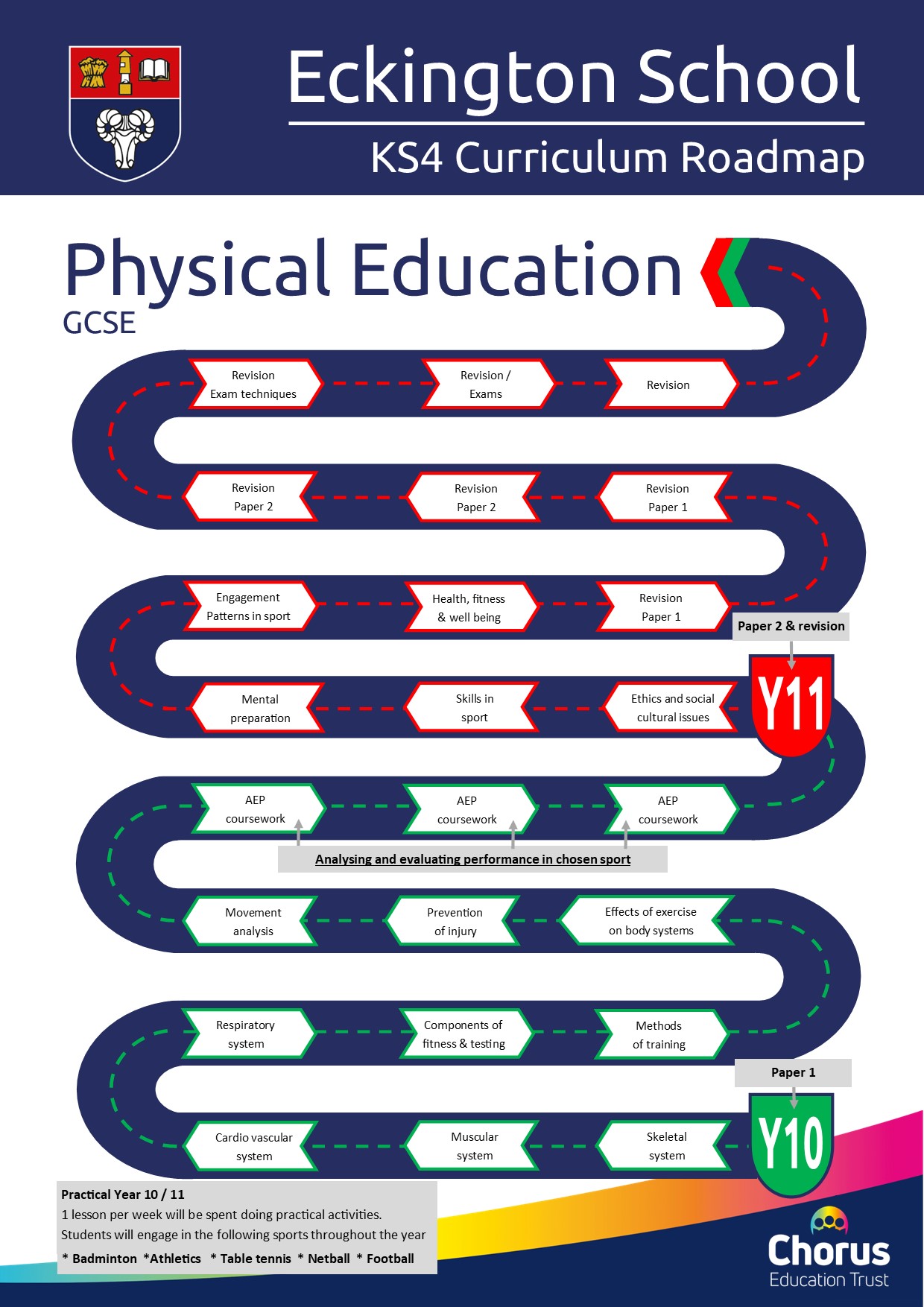Courses
We offer a broad and balanced curriculum, for:
Click the appropriate button below to find the details for each subject offered in each key stage.
Further details of our curriculum are available on the curriculum page.

Overview
Physical Education
Introduction
The course is taught through both practical and theory lessons. A wide range of teaching and learning methods will be used such as presentations, videos, worksheets, and internet sources. During the course you will also develop your understanding and ability in a range of sports; you will be assessed performing practically in these activities.
Qualification
GCSE
Awarding body
OCR
Course leader
S Clarke and R Roberts
Assessment
- Examination: 60% comprised of:
- 30% component 1
- 30% component 2
- Non-examined assessment: 40% comprised of:
- 30% component 4 (practical performance).
- 10% component 5 (analysis and evaluation of performance).
Curriculum
Curriculum roadmap
Topics
Component 1: physical factors affecting performance (examined unit)
- You will look at the way in which the parts of the human body work and function during physical activity and the long and short term effects of training and diet on these systems.
- You will also study the principles of training, why we train in different ways and how training plans can be made to optimise results.
- You will need to collect and use data.
Component 2: socio-cultural issues and sports psychology (examined unit)
- Socio-cultural issues include how sport is organised, how and what factors affect participation, strategies to improve participation, commercialisation of sport, drugs in sport, violence in sport, and ethics in sport.
- Sports psychology factors include classification of skill, what is skill, goal setting, mental preparation, guidance and feedback.
- Health, fitness and well-being include what is meant by health, fitness and well-being, diet and nutrition.
Component 4: performance within physical education
- Practical performance of three sports or activities: one team, one individual and one free choice from either list.
- IMPORTANT: students MUST be regularly competing/performing in at least one sport outside of school.
- This component is assessed by class teacher but externally moderated.
Component 5: analysis and evaluation of performance
- This component draws upon knowledge, understanding and skills learnt on course.
- You will need to look at your strengths and weaknesses in one sport and produce an action plan to improve performance.
- This does not have to be the same sport or activity that was undertaken in part one, although it can be.
- This component is assessed by class teacher but externally moderated. .
Skills and requirements
Skills learned
- The course gives you the opportunity to develop physically and academically.
- The practical lessons serve as a stress release and the opportunity to develop personal fitness levels.
Note
Students can choose a preferred course from GCSE Physical Education and NCFE Health & Fitness. A final decision about which course individual students follow will be decided by the Head of Subject and will be based upon assessments to determine the most appropriate course to achieve greater success for the individual. Students may also be transferred onto NCFE Health & Fitness after the first assessment window.
Beyond the classroom
Future pathways
The course will benefit you if you are considering a career in teaching, coaching, the armed forces or uniformed services, physiotherapy, personal training or sports technology.




